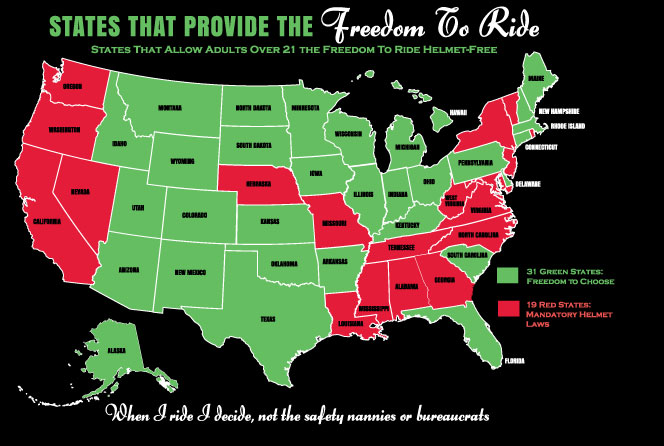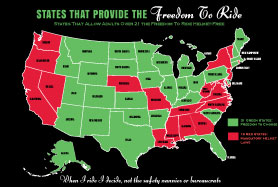65
THE ISSUE
In 1967, the federal government began to require that all states enact mandatory helmet laws. The federal government mandated this law by funding safety programs and construction projects only when a law was in place.
For nine years, the states battled back, working to remove this federal mandate. In 1976, Congress prohibited the Department of Transportation from administering financial penalties on states without helmet laws.
Since then, 31 states have modified their helmet laws. Tennessee is one of 19 states that retains its mandatory helmet law. Each year that passes with this law on the books, Tennessee loses millions of dollars in revenues.
According to projections that are based on similar outcomes in other states that have modified their helmet laws, Tennessee could generate more than $57 million in additional registration and sales tax revenues from new motorcycle sales should the state modify its laws to allow responsible, trained and educated adults to ride without helmets.
In addition, the state could see an increase of nearly 80,000 new motorcycle purchases following the passage of modified helmet laws.







